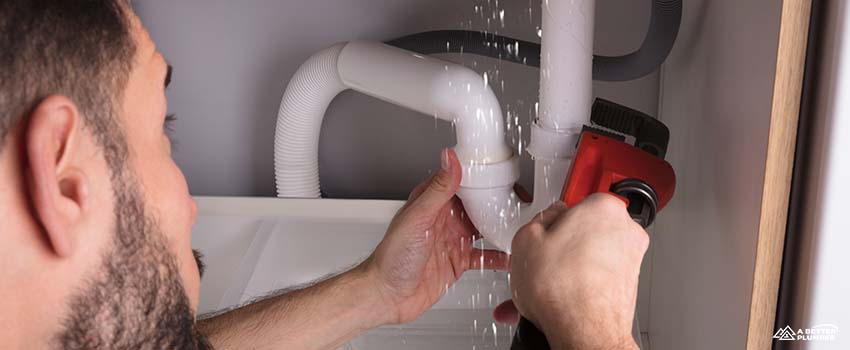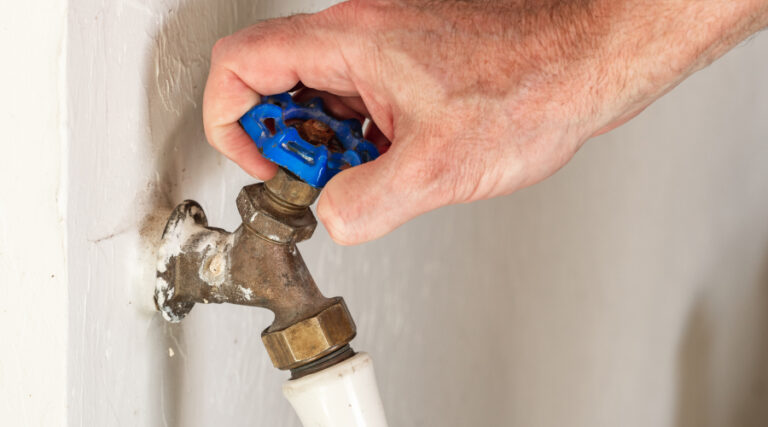Have you been on the lookout for info about Water Hammer Explained: Causes, Effects, and Solutions?

Intro
Have you ever before shut off a tap and listened to a loud bang or knocking sound originating from your pipes? That disturbing noise, typically called an abrupt thud or beat, is referred to as water hammer. It's not simply a bothersome peculiarity of older homes-- water hammer can occur anywhere, and if left unattended, it can result in even more considerable pipes problems. In this short article, we'll demystify water hammer, explore its reasons, and go over practical methods to take care of and avoid it. Think about it as your supreme guide to taming those rowdy pipelines finally.
Sudden Shutoff Closure
Rapidly shutting off a faucet or home appliance can produce a sudden water circulation stop. Dish washers and washing makers, which have automated valves, are typically offenders in producing these unexpected quits.
Inappropriate Pipe Sizing
Pipes that are also little for the amount of water moving with them can enhance the likelihood of water hammer. Limited space implies greater speed, and higher speed suggests more powerful pressure rises.
High Water Stress
Too much water stress not only wastes water and cash yet likewise magnifies the effects of water hammer. The even more pressure behind the flow, the tougher it strikes when forced to quit.
Why is Water Hammer an Issue?
You might question, "Is water hammer simply a noise concern?" It's more than that. While the noise can be bothersome, the actual problem lies beneath the surface.
The Science Behind Water Hammer
Water hammer is essentially regarding kinetic energy. When water moves with pipes, it carries momentum. If something disrupts that movement-- like a valve closing also promptly-- this energy changes into a pressure rise. Pipelines, installations, and valves experience this spike in pressure, often resulting in that banging noise you fear.
Usual Causes of Water Hammer
Recognizing the source of water hammer is the initial step to fixing it.
What is Water Hammer?
Water hammer is a shockwave of pressure that happens within your pipes when water circulation stops or changes instructions quickly. Imagine a crowd of runners running down a slim hallway, only to have a door bang closed at the end. The sudden quit triggers a chain reaction, leading to an accident of bodies. In your pipes system, water imitates those runners, and when it's forced to stop all of a sudden, it develops pressure waves that travel with the pipes.
Noisy Piping and Household Disturbances
One of the most noticeable issue is the noise. Hearing clunks and bangs every single time you do laundry or run the dish washer can disrupt the peace in your home. It may not seem like a big deal at first, but in time, it can endure your nerves.
Possible Damage to Plumbing System
Water hammer puts stress on shutoffs, joints, and fittings. Repetitive pressure surges can weaken connections, trigger leakages, or even cause pipeline ruptureds-- a costly and inconvenient situation nobody wants to deal with.
Long-Term Wear and Tear
With time, persistent water hammer can result in more regular repair services, premature endure elements, and a reduced life expectancy for your pipes system. Consider it as minor stress collecting into a bigger issue.
Identifying Water Embed Your Home
Before you can fix an issue, you need to validate it's there. So, just how do you recognize if you're handling water hammer?
Dead Giveaways and Appears
Pay attention for knocking or battering sounds when turning off taps or running home appliances. If the sound seems to find from within the wall surfaces, there's a great chance water hammer is at fault.
Conducting a Simple Examination
Attempt transforming faucets on and off at different rates. If you notice the sound just accompanies specific fixtures or at particular times, you have actually gathered clues about where and when water hammer is happening.
Temporary Fixes to Regulate Water Hammer
If water hammer is driving you up the wall, there are immediate steps you can take.
Changing Water Pressure
If your home's water pressure is set too expensive, think about installing a stress regulatory authority or changing the existing one. Reducing the stress can minimize the strength of those shockwaves.
Safeguarding Loose Pipes
Pipelines that aren't properly secured can magnify water hammer audios. Including pipeline straps or cushioning materials can help stabilize them and avoid them from rattling against surfaces.
Making Use Of Air Chambers or Arrestors
Air chambers are easy tools that trap a pocket of air in an upright pipe. This air functions as a pillow, soaking up the stress surge. If you don't have them, mounting water hammer arrestors can achieve a comparable impact.
Long-Term Solutions and Upgrades
If you're trying to find more permanent solutions, it may be time to think about some upgrades.
Setting Up Water Hammer Arrestors
These devices, developed particularly to respond to water hammer, can be placed near fixtures or devices. They have a piston and chamber that take in pressure adjustments prior to they spread throughout your system.
Establishing Your Comfort Degree
If you're handy, you could be able to deal with standard fixes like setting up arrestors or readjusting stress. However if you're not sure or if the trouble persists, there's no pity in looking for specialist aid.
When to Call a Plumbing technician
If your efforts at dealing with water hammer fail or if you suspect covert issues within your walls, a certified plumbing technician can identify the issue accurately and recommend long-term services.
Avoiding Water Hammer from the beginning
The most effective way to handle water hammer is to stop it prior to it starts.
Adding Expansion Tanks
A development tank linked to your hot water heater can assist alleviate stress variations brought on by thermal development. By offering water a location to go when warmed, you reduce stress on pipelines.
Upgrading Pipeline Materials
If you're planning improvements or taking care of an older home, updating to more adaptable piping materials, like PEX, can help in reducing the threat of water hammer. These products can soak up shock better than rigid pipes.
Balancing Expenses with Advantages
Bear in mind, the choice-- pipeline damages, leakages, and constant inconvenience-- can be far more expensive over time. Think of these fixes as an investment in assurance and home worth.
Prices and Considerations
Purchasing avoiding or fixing water hammer can save you money in the future.
Approximating Costs
The price varies depending upon the extent of the issue and the picked service. Easy fixes like adding arrestors or pipeline supports may be reasonably low-cost, while more comprehensive upgrades could cost more.
DIY vs. Expert Assistance
Some homeowners enjoy a good do it yourself challenge, while others like to leave plumbing issues to the pros.
Creating a Correct Plumbing Layout
If you're developing a new home or going through major improvements, speak with a plumbing professional about designing a layout that minimizes abrupt water circulation adjustments and consists of correct shock-absorbing components.
Routine Maintenance Checks
Just like your vehicle needs routine service, so does your plumbing system. Regular look for leakages, pressure adjustments, and strange sounds can capture issues early and prevent water hammer from taking hold.
Verdict
Water hammer isn't just an annoying sound; it's a signal that your pipes system requires attention. By understanding what causes it, taking instant action, and purchasing long-term services, you can ensure your pipes remain tranquil and peaceful. Whether you choose a simple DIY approach or employ a specialist, dealing with water hammer is an action towards an extra peaceful and trustworthy home.
Understanding Water Hammer: Causes, Effects, and Effective Solutions
Water hammer is a common plumbing issue that often goes unnoticed until it becomes a significant problem. If you've ever heard a loud banging noise when you turn off a faucet or noticed your pipes making strange sounds, you may be experiencing water hammer. In this blog post, we will delve into what water hammer is, its causes, effects, and most importantly, how to prevent and stop it from wreaking havoc on your plumbing system.
What is Water Hammer?
Water hammer, also known as hydraulic shock, is a phenomenon that occurs when a sudden change in the flow of water within a plumbing system results in pressure fluctuations and shockwaves. This can lead to loud banging or knocking noises in your pipes, and over time, it can cause damage to pipes, joints, and fixtures.
Causes of Water Hammer
- Quick Valve Closures: One of the primary causes of water hammer is the abrupt closing of valves, such as faucets, washing machines, or dishwashers. When water flow is suddenly stopped, the momentum of the flowing water creates pressure waves that travel through the pipes, causing the banging noise.
- High Water Velocity: Water traveling at high speeds through pipes can exacerbate water hammer. This is often the case in larger plumbing systems or systems with oversized pipes that allow water to flow too quickly.
- Long Pipe Lengths: Longer pipe lengths provide more room for pressure fluctuations to develop and intensify. The longer the distance for the pressure waves to travel, the more significant the water hammer effect can become.
Effects of Water Hammer
- Noise Pollution: The most obvious effect of water hammer is the loud banging or knocking noise that can disturb your household. These noises are not only irritating but can also signal potential damage to your plumbing system.
- Pipe Damage: Over time, the repeated stress from water hammer can weaken pipes and joints, leading to leaks, cracks, and even burst pipes. This can result in costly repairs and water damage to your property.
- Appliance Wear and Tear: Appliances like washing machines and dishwashers can suffer from accelerated wear and tear due to water hammer, leading to a shorter lifespan and more frequent breakdowns.
Preventing and Mitigating Water Hammer
- Install Water Hammer Arrestors: Water hammer arrestors are devices that absorb the shockwaves caused by water hammer, preventing them from traveling through the pipes and causing noise and damage. These can be installed at specific points in your plumbing system to effectively mitigate the issue.
- Adjust Water Pressure: High water pressure can contribute to water hammer. Consider installing a pressure reducing valve (PRV) to regulate the water pressure in your plumbing system and reduce the risk of water hammer.
- Slow Valve Closure: Whenever possible, avoid abruptly shutting off water valves. Instead, close valves gradually to reduce the momentum of the water flow and minimize pressure fluctuations.
- Install Air Chambers: Air chambers are vertical sections of pipes that contain air, which acts as a cushion to absorb the shockwaves created by water hammer. Regular maintenance is essential to ensure the air chambers remain effective.

I stumbled upon that post on while doing a search on the internet. For those who appreciated our blog post if you please make sure you remember to pass it around. Bless you for being here. Kindly visit our blog back soon.
Visit Our Website
Comments on “Managing Water Hammer: Locating the Source and Implementing Effective Fixes”